Past Visiting Scholars
-
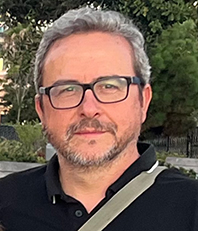
Fernando Aguiar
July – December 2022
Fernando Aguiar is a researcher at the Philosophy Institute of the Spanish National Research Council (IFS-CSIC). His research interests include experimental ethics, political philosophy and moral psychology.
-

Jana Bacevic
February – April 2025
Jana Bacevic is Associate Professor at Durham University and a member of the editorial board of The Philosopher, UK's longest-running public philosophy magazine. Jana has written extensively on social theory and the politics of knowledge, including questions of non-prediction and the use of scientific advice to inform policy. Jana's current project, 'Uncategorical imperatives: understanding non-reciprocity' is funded by the Leverhulme Trust and explores the role of noncategorical ethical judgments in the context of the (post-)Anthropocene.
-
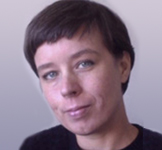
Megan Blomfield
March – April 2020
Megan Blomfield is a professor in The University of Sheffield Department of Philosophy. Her research concerns global justice and the environment, focusing on the normative dimensions of climate change, and her book "Global Justice, Natural Resources, and Climate Change," was published in May 2019. -
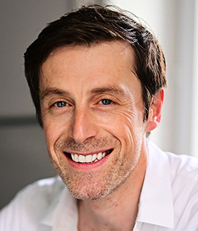
Thomas Burri
February – May 2024
Thomas Burri is a professor of international law and European law at the University of St. Gallen Law School in Switzerland. He holds a Ph.D. in international law from the University of Zurich and an LL.M. in European law (College of Europe, Bruges) and is admitted to the Zurich bar. He was previously a visiting researcher at Harvard University, University of Queensland, and Ludwig-Maximilians University Munich. He has researched the law and ethics of technology, including autonomous robots and A.I., for more than a decade. His most recent publication: "Thomas Burri, A Challenge for the Law and A.I., 2023 Nature Machine Intelligence (5) 1508" – other publications also on SSRN. -
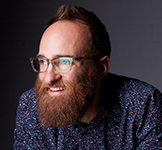
Austin Choi-Fitzpatrick
January 2020 – January 2021
Austin Choi-Fitzpatrick is an author, educator and speaker. His work focuses on politics, culture, technology and social change. His recent books include "The Good Drone" (MIT Press, 2020) and "What Slaveholders Think" (Columbia, 2017), with shorter work appearing in Al Jazeera, the Guardian, Aeon, and Slate. Austin lives in California and holds academic appointments in the United States (University of San Diego) and England (University of Nottingham). -
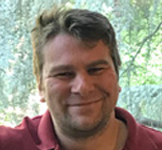
Bryan Cwik
September – December 2019
Bryan Cwik is an assistant professor in the Portland State University Department of Philosophy. He works on bioethics, political philosophy and philosophy of science, with recent work on intellectual property and climate change, and gene editing. -
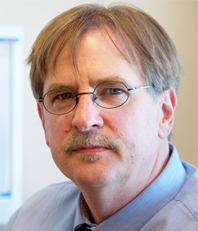
Raymond De Vries
January – February 2024
Raymond De Vries is professor emeritus at the University of Michigan, Center for Bioethics and Social Sciences in Medicine and at the University of Maastricht (Netherlands), School for Public Health and Primary Care. A Hastings Center fellow, he is a medical sociologist with broad experience in the study of the practice and profession of bioethics and the social and cultural influences on the organization of maternity care systems. He is the author of "Making Midwives Legal" (Ohio State University Press, 1996), "A Pleasing Birth: Midwifery and Maternity Care in the Netherlands" (Temple University Press, 2005), and co-editor of "Birth by Design: Pregnancy, Maternity Care and Midwifery in North America and Europe" (Routledge, 2001), "The View from Here: Bioethics and the Social Sciences" (Blackwell, 2007), "Qualitative Methods in Health Research" (Sage, 2010), "Critical studies of risk and uncertainty in maternity care. An international perspective" (Palgrave, 2024), and special issues of "Medicine, Health Care and Philosophy" (2008), "Social Science and Medicine" (2013), "Journal of Clinical Ethics" (2013), and "AMA Journal of Ethics" (2019).
-
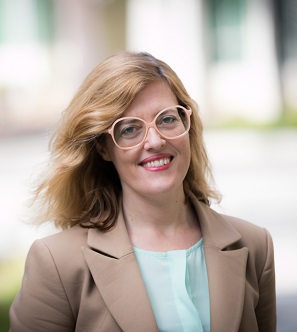
Sofia Efstathiou
April – July 2018
Sophia Efstathiou was a postdoctoral research fellow in the Department of Philosophy and Religious Studies at the Norwegian University of Science and Technology. She works in philosophy of science, ethics of technology and art-based approaches to philosophy and responsible research and innovation.
-
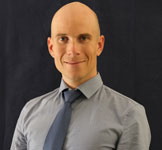
Thilo Hagendorff
November – December 2021
Thilo Hagendorff is a postdoctoral scholar at the University of Tuebingen's Cluster of Excellence "Machine Learning" (Germany). He is an expert in applied ethics, especially technology and AI ethics. His research concerns methodological questions of AI ethics as well as specific subfields like industry involvement, publications norms, quality data, or privacy in AI research. -
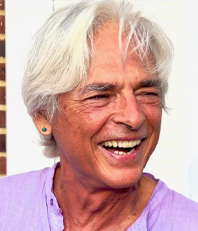
Dale Jamieson
April – June 2024
Dale Jamieson is Professor Emeritus of Environmental Studies, Director of Center for Environmental and Animal Protection, Affiliated Professor of Law, Medical Ethics, and Bioethics, Founding Director of the Environmental Studies Program, former Chair of the Department of Environmental Studies, and Professor of Philosophy at New York University.
He led the creation of the Department of Environmental Studies and the graduate program in Animal Studies at New York University. He has held visiting appointments at the National Center for Atmospheric Research, Cornell, Princeton, Stanford, Oregon, Arizona State, Oxford University and Kings College London in the U.K., Monash University and the University of the Sunshine Coast in Australia, and LUISS University in Italy. He is also a former member of the School of Social Sciences at the Institute for Advanced Study in Princeton. In 2017, he was Zurich Distinguished Visitor on Climate Change at the Bren School of Environmental Science and Management at the University of California at Santa Barbara. In 2016, he was awarded the Association of Environmental Studies and Sciences William R. Freudenburg Lifetime Achievement Award.
Jamieson is the author of "Reason in a Dark Time: Why the Struggle to Stop Climate Change Failed--and What It Means For Our Future" (Oxford, 2014), "Ethics and the Environment: An Introduction" (Cambridge, 2008; second edition due out in 2024), "Morality's Progress: Essays on Humans, Other Animals, and the Rest of Nature" (Oxford, 2002), and most recently, "Discerning Experts: The Practices of Scientific Assessment for Environmental Policy" (Chicago, 2019), co-authored with Michael Oppenheimer, Naomi Oreskes, and others. He is also the co-author of "Love in the Anthropocene" (OR, 2015), a collection of short stories and essays written with the novelist, Bonnie Nadzam, and the editor or co-editor of nine books. Jamieson has published more than one hundred articles and book chapters, is on the editorial boards of several journals, and his research has been funded by the National Science Foundation, the U.S. Environmental Protection Agency, the National Endowment for the Humanities, the Office of Global Programs in the National Atmospheric and Aeronautics Administration, as well as private foundations. -
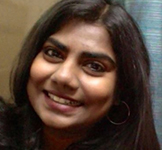
Saveetha Meganathan
October 2019 – September 2021
Saveetha Meganathan is a research scientist at the Tata Institute for Genetics and Society in Bangalore, India. She has consulted for Give2Asia, a nonprofit helping communities meet philanthropic goals. At the institute, Saveetha researched the ethics of gene drives as it relates to India.
-
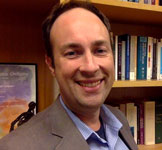
S. Andrew Schroeder
July 2020 – December 2021
S. Andrew Schroeder an associate professor of philosophy at Claremont McKenna College. His research and teaching cover a range of topics in ethics, political philosophy, bioethics, the philosophy of disability and the philosophy of science. Schroeder was the recipient of the Frederick Burkhardt Residential Fellowships for Recently Tenured Scholars 2020, from the American Council of Learned Societies. -
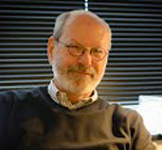
Elliott Sober
January – March 2020
Elliott Sober is Hans Reichenbach Professor and William F. Vilas Research Professor in the Philosophy Department at the University of Wisconsin—Madison. His most recent book, "Ockham's Razors - A User's Manual," was published in July 2015 by Cambridge University Press. -
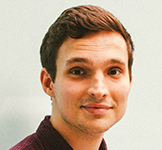
Cedric Whitney
September 2019 – May 2020
Cedric Whitney earned a bachelor's degree in biomedical engineering from the University of Delaware, before working in process automation for Bloomberg and as a senior partnership manager for a leading health AI start-up, Owkin. His research interests are focused on digital inequalities, and specifically on how expertise and accountability play a role. -
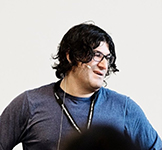
Eric Winsberg
January – August 2020
Eric Winsberg is a professor in the University of South Florida Philosophy Department. His principal interests are in the philosophy of science, climate science and physics. His work in the philosophy of climate science specifically relates to their application in science policy and ethics.
Past Postdoctoral Scholars
-
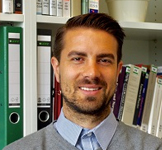
Daniel Callies
2018 – 2021
Daniel Edward Callies received his bachelor's and master's degrees in philosophy from San Diego State University, and his Ph.D. at Goethe University Frankfurt. Daniel defended his dissertation “On the Ethics and Politics of Climate Engineering,” then worked as a postdoctoral fellow at Goethe University until joining the Institute for Practical Ethics. He left to pursue a clinical ethics fellowship with the Health Ethics Center at the UCLA David Geffen School of Medicine.
-
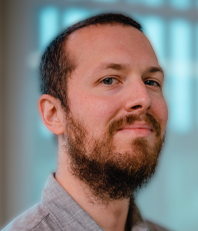
Derek Halm
2023 – 2025
Derek Halm is an applied environmental ethicist and philosopher of biology with broad interests in environmental conservation and animal welfare. He is working on several projects, including the conservation of hybrid species. Derek received his Ph.D. in philosophy from the University of Utah, his master’s degree in philosophy from Western Michigan University, and his bachelor’s degree in philosophy and English from the University of Michigan-Flint.
-
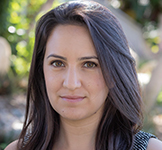
April Hovav
2019 – 2021
April Hovav earned a Ph.D. in sociology with a certificate in gender studies from the University of Southern California. After her time with the institute, she accepted a postdoc position at Occidental College. At the Institute for Practical Ethics, she conducted research on the social and ethical implications of using gene drive technologies to combat malaria.
-
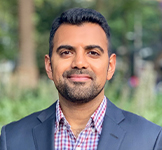
Athmeya Jayaram
2019 – 2021
Athmeya Jayaram earned a bachelor’s degree in philosophy at Amherst College and a Ph.D. in political theory at the University of California Berkeley. After his time with the institute, Jayaram accepted a Hecht-Levi Postdoctoral Fellow at the Berman Institute of Bioethics at Johns Hopkins University. Athmeya’s research concerns the justice and justification of emerging technologies.
-
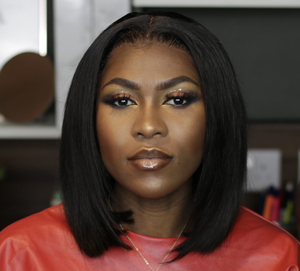
Zinhle Mncube
2022 – 2023
Zinhle Mncube is a philosopher of science with a particular interest in race and medicine. Her current research concerns the epistemology and ethics of personalizing medicine. Mncube completed her Ph.D. at the Department of History and Philosophy of Science at the University of Cambridge, with her dissertation "The Prospects of Personalizing Medicine." Mncube is a former lecturer in the Department of Philosophy at the University of Johannesburg, where she taught courses on the use of race in medicine, race, racism and gender, the role of science in society, and racist hate speech, amongst others.
-
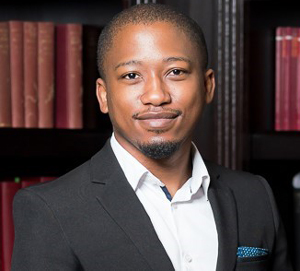
Bonginkosi Shozi
2022 – 2023
Bonginkosi Shozi holds the degrees of Bachelor of Laws (LLB) and Master of Laws (LLM) in Constitutional Law, Theory, and Human Rights Litigation, both obtained from the University of KwaZulu-Natal. He recently completed the requirements for a Ph.D. in Law at the same institution. Bonginkosi conducts research on the legal, ethical and human rights implications of novel technologies. This includes biotechnological innovations — such as CRISPR — as well as assisted reproductive technologies, and pharmaceutical products. His doctoral thesis, funded by the National Research Foundation and the UKZN African Health Research Flagship, is titled “An Afrocentric approach to CRISPR-Cas9: Analysing the use of genetic technologies in human reproduction through the lens of human rights and African values,” and investigated critical legal, ethical and human rights issues emanating from the prospect of heritable human genome editing from an African perspective.
-
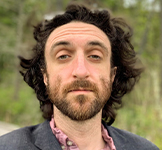
Jacob Sparks
2019 – 2020
Jacob Sparks earned a bachelor's degree in physics from Tufts University and a Ph.D. in applied philosophy from Bowling Green State University. After his time with the institute, he became an assistant professor in the philosophy department at California Polytechnic State University. At the institute, Sparks worked on ethical issues surrounding privacy and automation.
-
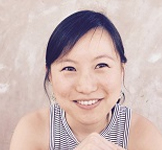
Amy Zhou
2018 – 2019
Amy Zhou earned her bachelor's degree and Ph.D. in sociology from UCLA. She is a medical sociologist interested in health inequalities in the United States and global setting. At the institute, Zhou conducted research on the social and ethical implications of gene drive technologies. After her scholarship was complete, she become an assistant professor in the sociology department at Barnard College.
Past Ph.D. Fellows
-
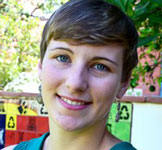
Samantha Berthelette
2020 – 2021 -

Colin M. Burke
2019 – 2020 -
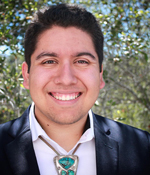
Alec J. Calac
2021 – 2022 -
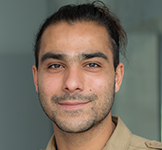
Davide Carpano
2019 – 2020 -
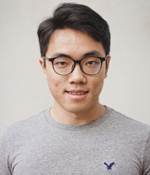
Keng-Chi Chang
2021 – 2022 -

Fenghua Chen
2022 – 2023
Fenghua Chen is a Ph.D. student in the Department of Sociology studying economic sociology, medical sociology and gender. Prior to her Ph.D., Chen earned a bachelor’s degree in sociology from Tsinghua University, an MPhil in sociology from the University of Cambridge, and an master’s degree in sociology from Columbia University.
At the institute, she will explore the ethical and social implications of transitional reproductive care, with a focus on egg freezing practices in the United States and China. She is particularly interested in understanding how assisted reproductive technology (ART) markets are reinforcing cultural norms about gender, family and kinship in a global context.
-
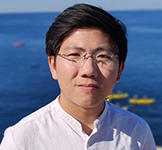
Eugene Chua
2019 – 2020 -
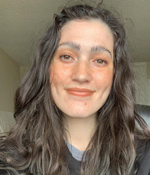
Giulia Corno
2021 – 2022 -
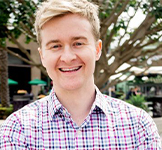
Daniel Driscoll
2019 – 2020 -
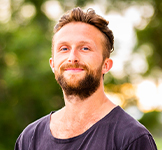
Ross Graham
2023 – 2024
2021 – 2022
-

Ross Graham
2019 – 2020 -
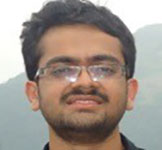
Tarun Kalluri
2020 – 2021 -
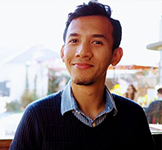
Mohammad Khamsya Bin Khidzer
2019 – 2020 -
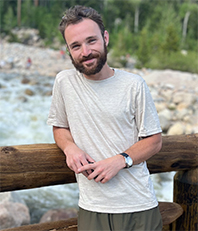
Leo Kleiman-Lynch
2022 – 2024
Leo Kleiman-Lynch is currently a Ph.D. student in the Department of Psychology. He obtained his master’s degree in experimental psychology from UC San Diego, and his undergraduate degree in applied psychology from Ithaca College.
His research focuses primarily on how and why default choices affect the decisions people make. With the institute, he plans to explore how strategic use of default choices can help low-income households make energy decisions that are aligned with their preferences.
-
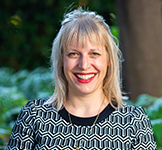
Cami Koepke
2019 – 2020 -
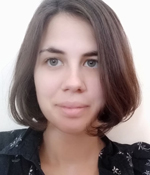
Milana Kostic
2021 – 2022 -
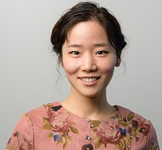
JiMin Kwon
2018 – 2019 -
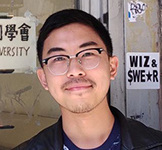
Chuncheng Liu
2019 – 2020
As of March 2023, Chuncheng Liu has accepted a one-year postdoctoral research appointment at Microsoft Research and an appointment as Assistant Professor in Sociology and Communication (joint appointment) at Northeastern University in Boston, which he will begin after his year at Microsoft Research.
-
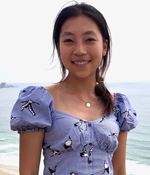
Shirley (Xingyu) Liu
2021 – 2022 -
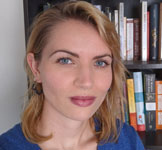
Elizabeth Mayes
2020 – 2021 -
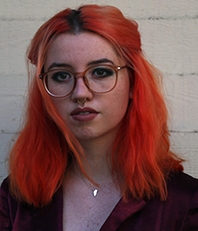
Kathryne Metcalf
2022 – 2024
Kathryne Metcalf is a Ph.D. candidate in the Department of Communication and Science Studies Program, where she is also the co-organizer of the Critical Data Studies Working Group. She holds a master’s degree in American culture studies from Bowling Green State University, and a bachelor’s degree in literary studies from Beloit College.
Her work explores how databases function as the epistemic grammar of big data sciences. Her current project examines the role of biobanks — institutional collections of biomaterials and related data — as a critical infrastructure within the interdisciplinary research ecologies of contemporary genomics.
-
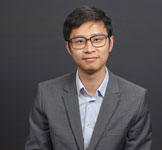
Ke Nie
2020 – 2021 -

Kennedy Pitcher
2021 – 2022 -
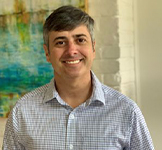
Edward Randolph
2019 – 2020 -
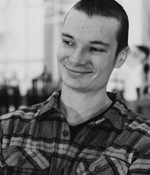
Joe Riley
2021 – 2022 -
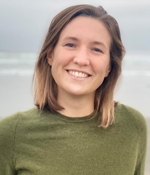
Katherine Rittenhouse
2021 – 2022 -
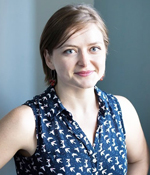
Caryn K. Rubanovich
2021 – 2022 -
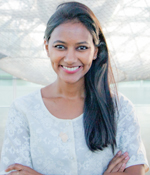
Akshita Sivakumar
2021 – 2022 -
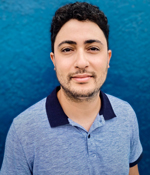
Matthew Soleiman
2021 – 2022 -
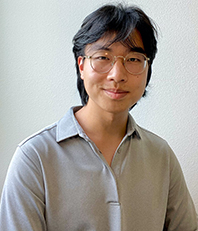
Lian Song
2022 – 2024
Lian Song is a Ph.D. student in the Department of Communication and Science Studies Program. His research examines the emerging processes and promise of community-led deliberation and power over socio-technical systems. His current project explores political configurations in relation to urban surveillance and database systems, especially as they mediate local government and community actors.
-
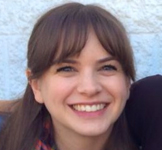
Sarah Stembridge
2019 – 2020 -
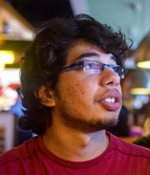
Udayan Tandon
2021 – 2022 -
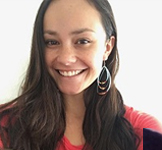
Riley I. Taitingfong
2018 – 2019 -
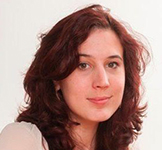
Ann Thresher
2019 – 2020 -
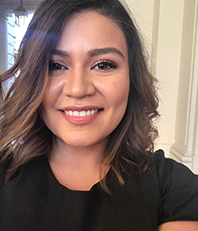
Karina Villa Ortiz
2022 – 2024
Karina Villa Ortiz is a Ph.D. student in the Department of Philosophy. She earned her undergraduate degree in philosophy at California State Polytechnic University, Pomona.
Her current research interests are in Epistemology (social and formal), Philosophy of Law (as it intersects with epistemology) and Applied Ethics. Her current research projects include questions about animal cognition (such as how dogs understand time and build concepts) as well as the use of artificial intelligence in immigration enforcement.
-
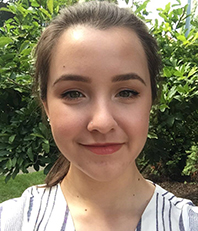
Sophie Webb
2022 – 2024
Sophie Webb is a Ph.D. student in the Department of Sociology. Her research interests include bioethics, public health and health inequities, while her current project focuses on the pathway from ethics to implementation in public health. As a fellow at the Institute for Practical Ethics, she will be investigating what effect different prioritizations of COVID vaccines have had on health disparities.
-
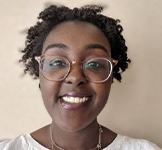
Jada Wiggleton-Little
2019 – 2020 -

Eddie Yang
2020 – 2021 -
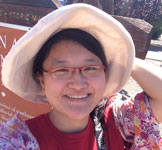
Keyao Yang
2020 – 2021 -
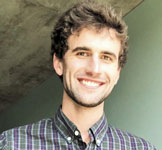
Jacob Zellmer
2020 – 2021 -
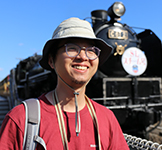
Bolun Zhang
2019 – 2020
Past Visiting Graduate Students
-
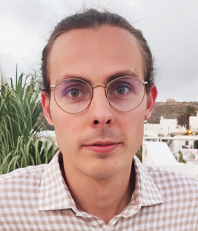
Jon Rueda
August 2023 – January 2024
Jon Rueda is a Fulbright Visiting Graduate Student at the Institute for Practical Ethics beginning August 2023 until February 2024. He is a Ph.D. candidate in Philosophy at the University of Granada (Spain), where he is writing a thesis on how genetic enhancement technologies may lead to moral changes in the future. Beyond his dissertation topic, his current research interests include philosophical problems around techno-moral change, anticipatory governance of emerging technologies, the ethics of noise, and sleep hygiene as a bioethical and public health problem. His previous articles are available at: https://jonrueda.wordpress.com/blog/
-
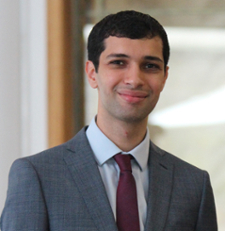
Ahmad Elabbar
March – July 2023
Ahmad Elabbar is a Ph.D. student in philosophy of science at the University of Cambridge. His Ph.D. project explores the ways in which global climate assessments raise concerns of justice, drawing on perspectives from history and philosophy of science, political philosophy and social epistemology. Prior to his Ph.D., he completed degrees in physics, philosophy, and history and philosophy of science and medicine. Currently, in Spring 2023, he is visiting the Institute for Practical Ethics at UC San Diego as a Fulbright Postgraduate Scholar.
-
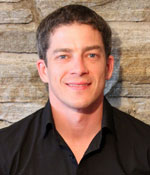
Daniel Trusilo
2022
While at the Institute for Practial Ethics, Daniel Trusilo was a Ph.D. candidate at the University of St. Gallen, Switzerland. He researches the practical application of ethics to autonomous systems with a focus on autonomous robotic systems developed for humanitarian and conflict environments.
Past Research Scholars
-
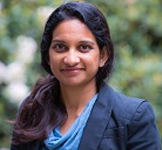
Ramya M. Rajagopalan
Ramya M. Rajagopalan’s work uses ethnographic and archival methods to examine the social impacts of genome technologies and big data in biomedicine. In one strand of her research, she has analyzed debates about the meaning and significance of genetic variation for social categories of identity like race. Rajagopalan earned her Ph.D. in biology at the Massachusetts Institute of Technology, and completed postdoctoral fellowships in sociology and bioethics at the University of Wisconsin-Madison.